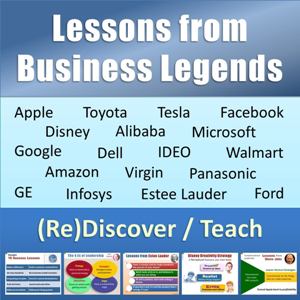| |
|
Example of Knowledge Sharing Practices
Microsoft
"Knowledge
management is a fancy term for a simple
idea. You're managing data, documents, and
people efforts."
~
Bill Gates
|
|
 |
|
|
|
"I
like my job because it involves
learning. I like being
around smart people who are
trying to figure out new
things... We read, ask
questions, explore, go to
lectures, compare notes and
findings... consult experts,
daydream, brainstorm, formulate
and test hypotheses, build
models and
simulations, communicate
what we're learning, and
practice new skills,"
~
Bill Gates
|
|
|
|
|
"The ultimate goal is to have a
team develop the best ideas
from throughout an organization
and then act with the same unity
of purpose and focus that a
single, well-motivated person
would bring to bear on a
situation," says Bill Gates.
That way, the
super-smart,
articulate person becomes the
organization writ large.
|
|
| |
Corporate Knowledge Management
Culture
It
is the boss' role to encourage
collaboration and knowledge
sharing, using not just
exhortation but reward for the
purpose. "Power comes not from
knowledge kept, says Bill Gates,
but from knowledge shared" – and
managed. He advocates setting up
Specific projects that share
knowledge across the
organization must be set. This
sharing should be made "an
integral part of the work itself
– not an add-on frill."
|
|
Ask
Learning SWOT Questions
Vision for
Innovation
Innovation
Teams
Hot Teams
GM vs.
Microsoft
Microsoft
70-764 Test |
|
|
|